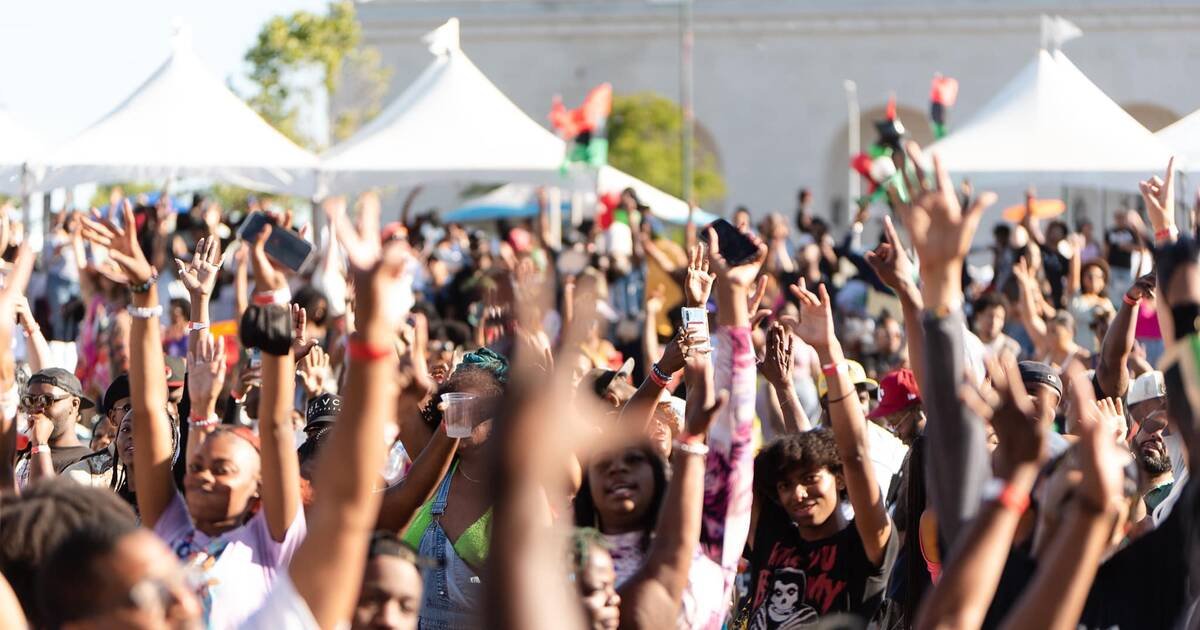Juneteenth Cannabis Equity: Ownership, Justice, and Liberation
Ah, Juneteenth. A holiday packed with history, resilience, joy, and barbecue. It commemorates June 19, 1865—the day enslaved Black Americans in Galveston, Texas finally learned they were free. Two and a half years late to the party, but freedom still came knocking.
Today, Juneteenth isn't just about looking back. It's a bold call to keep pushing forward. That includes a spotlight on juneteenth cannabis equity—because while cannabis laws have changed, injustice hasn’t exactly vanished in a puff of smoke.
Let’s connect the dots between Juneteenth, justice, and the green frontier of legal cannabis. Spoiler: the spirit of liberation is alive and well, and it’s demanding more than just decriminalization.
A Brief History Puff: The War on Drugs and Its Fallout
Before cannabis became the wellness world’s favorite buzzword, it was used as a weapon. The War on Drugs disproportionately targeted Black and Brown communities. Despite similar usage rates, Black Americans were nearly four times more likely to be arrested for cannabis possession than white Americans.
This wasn’t coincidental—it was calculated. Prohibition criminalized entire communities while paving the way for mass incarceration and economic exclusion.
Now that cannabis is being legalized across the U.S., a big question lingers: who’s actually profiting from this new green rush?
You guessed it—not the communities that bore the brunt of criminalization.
Read more about how the War on Drugs created lasting harm.
Cannabis Equity Today: Barriers Still Blaze
The legal cannabis industry is booming. It’s expected to generate over $71 billion globally by 2030. Yet, only about 2% of cannabis businesses are Black-owned. That stat should stop you mid-hit.
So, why is that the case? Systemic roadblocks haven’t disappeared—they’ve just gone corporate:
Overregulation: Endless permits, inspections, and confusing red tape.
Sky-high startup costs: Opening a legal dispensary often requires hundreds of thousands—if not millions—of dollars.
No access to traditional banking: Most cannabis businesses can’t get loans due to federal prohibition.
Background checks that penalize past convictions: The very laws being reversed are still punishing people.
Translation? The folks who should be first in line are often left outside, knocking.
What Juneteenth Teaches Us About Cannabis Equity
Juneteenth celebrates freedom long denied and finally claimed. It’s about more than the end of slavery. It’s about justice, repair, and full participation in society.
The juneteenth cannabis equity movement shares that same ethos. It demands that those most harmed by outdated laws get real access to ownership, resources, and reinvestment.
Legalization without equity? That’s like opening the doors of opportunity and hanging a “Do Not Enter” sign on the handle.
This isn’t just a cannabis issue. It’s a civil rights issue. It’s also a matter of economic justice and restorative policy.
Equity Programs: A Start, Not a Solution
To address past harms, some states have launched cannabis equity programs. These programs aim to prioritize licensing for those impacted by the War on Drugs. Sounds great, right? Well… execution matters.
Take California’s equity push. It promised a lot—but funding delays, bureaucratic tangles, and slow rollouts have stunted progress. Entrepreneurs get stuck waiting while larger, better-funded players move ahead.
Still, there are bright spots:
Massachusetts offers training, grants, and priority licensing.
Illinois implemented automatic expungement for past convictions.
New York reserved licenses for those with cannabis-related charges.
But here’s the kicker: equity programs need serious funding and oversight. Good intentions alone can’t carry an entire industry.
Learn more: Green Dragon Partnership with Last Prisoner Project
Real Reparative Justice in Cannabis: What It Looks Like
Let’s move beyond buzzwords. Juneteenth cannabis equity means actively righting wrongs.
Here's how:
Automatic expungement of non-violent cannabis convictions
Access to funding and loans for minority entrepreneurs
Incubator programs offering mentorship and business training
Community reinvestment into neighborhoods harmed by over-policing
Most importantly, it means centering the people who were impacted. Not just featuring them in marketing. Not just hiring for optics. Actually giving them a seat at the table—and a slice of the pie.
Want to support those efforts? Check out organizations like Supernova Women, The Hood Incubator, and Cannabis Equity IL Coalition.
Big Cannabis vs. Community Cannabis: A Culture Clash
Let’s talk about corporate cannabis. Think fancy websites, celeb endorsements, and packaging prettier than your last birthday card. Many of these companies are backed by investors with no connection to the communities harmed by prohibition.
Even worse? Some are connected to folks who helped enforce those harsh drug laws in the first place. That’s like letting the school principal who expelled you come back to run the lunchroom.
Community-driven cannabis businesses, meanwhile, often operate on razor-thin margins. They bring authenticity, reinvest locally, and build equity from the ground up. But they need support—from governments, consumers, and advocates alike.
Want to Help? Get Involved in Cannabis Equity
You don’t need a grow license or a lobbying firm to make a difference. Try these high-impact ways to support juneteenth cannabis equity:
Buy from equity-owned brands. Spend your dollars intentionally.
Ask questions. Your dispensary should know who owns the products they sell.
Support pro-equity policy. Show up, sign petitions, vote with your values.
Donate or volunteer. Help organizations doing the groundwork.
Educate others. Yes, you can be the woke weed expert at brunch.
Here’s a pro tip: Cannaclusive’s Accountability List helps you find diverse cannabis companies to support.
The Future of Juneteenth Cannabis Equity: High Standards, Higher Hopes
We’re not asking for handouts. We’re asking for fairness. Juneteenth cannabis equity isn’t about guilt—it’s about growth. Legal cannabis offers a once-in-a-generation chance to repair harm and build inclusive wealth.
Juneteenth reminds us that freedom delayed is still worth fighting for. And cannabis equity is a freedom worth fighting for too.
Imagine an industry where access isn’t about who you know, but what you’ve survived. Imagine communities thriving from the very thing that once tore them apart.
Sound dreamy? Good. Now let’s make it real.
Wrapping It Up: Liberation is a Group Project
Here we are—celebrating Juneteenth with our hearts full and our rolling trays ready. But liberation doesn’t stop with legal status. It starts with justice, grows with investment, and thrives through equity
This year, do more than light a joint. Light a fire under exclusionary policies. Lift up silenced voices. Support cannabis businesses building something bigger than profits.
Because true freedom doesn’t trickle down. It rises up.
Happy Juneteenth—and here’s to blazing trails, building equity, and getting higher in every sense of the word.





